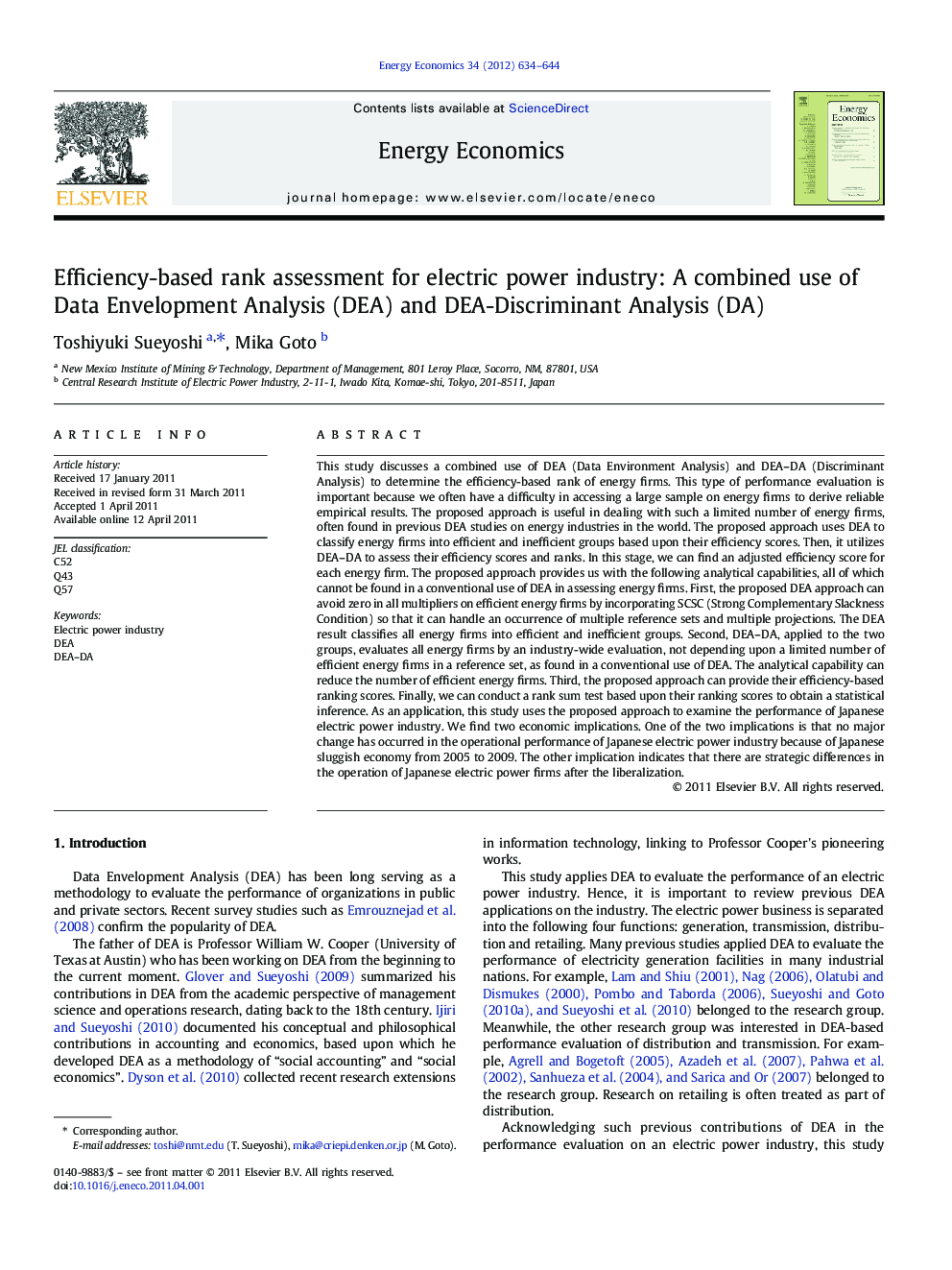| کد مقاله | کد نشریه | سال انتشار | مقاله انگلیسی | نسخه تمام متن |
|---|---|---|---|---|
| 5065406 | 1372315 | 2012 | 11 صفحه PDF | دانلود رایگان |

This study discusses a combined use of DEA (Data Environment Analysis) and DEA-DA (Discriminant Analysis) to determine the efficiency-based rank of energy firms. This type of performance evaluation is important because we often have a difficulty in accessing a large sample on energy firms to derive reliable empirical results. The proposed approach is useful in dealing with such a limited number of energy firms, often found in previous DEA studies on energy industries in the world. The proposed approach uses DEA to classify energy firms into efficient and inefficient groups based upon their efficiency scores. Then, it utilizes DEA-DA to assess their efficiency scores and ranks. In this stage, we can find an adjusted efficiency score for each energy firm. The proposed approach provides us with the following analytical capabilities, all of which cannot be found in a conventional use of DEA in assessing energy firms. First, the proposed DEA approach can avoid zero in all multipliers on efficient energy firms by incorporating SCSC (Strong Complementary Slackness Condition) so that it can handle an occurrence of multiple reference sets and multiple projections. The DEA result classifies all energy firms into efficient and inefficient groups. Second, DEA-DA, applied to the two groups, evaluates all energy firms by an industry-wide evaluation, not depending upon a limited number of efficient energy firms in a reference set, as found in a conventional use of DEA. The analytical capability can reduce the number of efficient energy firms. Third, the proposed approach can provide their efficiency-based ranking scores. Finally, we can conduct a rank sum test based upon their ranking scores to obtain a statistical inference. As an application, this study uses the proposed approach to examine the performance of Japanese electric power industry. We find two economic implications. One of the two implications is that no major change has occurred in the operational performance of Japanese electric power industry because of Japanese sluggish economy from 2005 to 2009. The other implication indicates that there are strategic differences in the operation of Japanese electric power firms after the liberalization.
Research Highlights⺠The proposed approach is useful in dealing with a limited number of energy firms. ⺠The proposed approach evaluates all energy firms by an industry-wide evaluation. ⺠There are strategic differences in the operation of Japanese electric power companies after the liberalization.
Journal: Energy Economics - Volume 34, Issue 3, May 2012, Pages 634-644